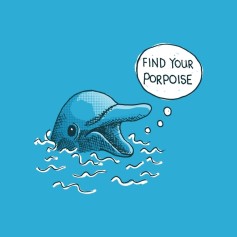Addressing a fundamental question about customer value
Are universities value for money? is the question that Sir Keith Burnett the president and vice-chancellor of the University of Sheffield has recently discussed in his Times Higher article Do UK universities provide value for money?
The question is driven by impact of increases in student fees, the debates about vice chancellor pay and the method of funding of higher education in general. The explicit defense of university value in the face of challenge and criticism is evidently new territory for many senior university management teams. The high risk move in this area is delegating the responsibility for creating the university value proposition(s) to university marketing communication departments in isolation .
Why is this risky? It is risky because when ‘marketing’ is seen as just the awareness making and customer communication role (attention interest decision action) alone rather than anything to do with the origination and delivery of student value (the domain of researchers, tutors and student support staff) a critical disconnect occurs between the essence and expression of value. If the expression of a university value proposition is left to the university marketing communication department alone it is prone to ‘facelift marketing’ couched in generic consumer values and generic consumer experiential terms rather than anything to do with educational value creation and educational delivery essence of the higher education offer. This can end up being the world of superficially differentiated promises that can be disconnected from the service reality of learning in a higher education institution. The sort of thing whereby ‘our university is near the seaside or a national park, or our university has great accommodation and a vibrant night life’.
Value is a hard thing to pin down
Trying to understand, deliver and communicate value is not new territory for anybody who has worked in the commercial sector. Nor is it new territory for a significant number of business and management academics who could knowledgeably advise their university management teams on the ambiguous nature of value.
‘Value may be one of the most overused and misused terms in marketing and pricing’ Leszinski and Marn (1997:99)
Just as an example of the extent of research into this deceptively simple and perennially contentious notion here are some relevant articles:
Leszinski, R. and Marn, M.V. (1997) Setting value, not price. The McKinsey Quarterly, No. 1, pp. 99-115.
Woodruff R.B. (1997) Customer value: The next source for competitive advantage: Journal of the Academy of Marketing Science. Volume 25, Issue 2, pp 139-153
Payne A., Holt S. (2001) Diagnosing Customer Value: Integrating the Value Process and Relationship Marketing. British Journal of Management. Vol 12 159-182.
Khalifa A.S. (2004) Customer value: a review of recent literature and an integrative configuration. Management Decision Vol. 42 No. 5, 2004 pp. 645-666
Gallarza M.G. Gil-Saura I. Holbrook, M.B. (2014) The value of value: Further excursions on the meaning and role of customer value. Journal of Consumer 10: 179–191
Understanding value is vital for all that follows. If you want to achieve competitive advantage you need to understand value, if you want happy customers you need to understand value, if you want a successful business you need to understand value. Value is a multifaceted moving target. Sir Keith points out that value is more than just the price or as Michael Porter claimed ‘the price someone is willing to pay’. I totally concur with Sir Keith and I believe that there is one very important thing about understanding value that gets lost in the wash and there is a good explanation for this which is…
Marketing courses are typically built on a particular and implicit management philosophy.
The majority of business management courses in business schools around the world are built on the assumption of management as a hard science (This is the hidden agenda of the lauded MBA for example). Hard science is not just any old science but a particular form of objective, value free, deal with the facts you can see and measure sort of science that goes by the name of Positivism . Now this sort of ‘science’ is great for things like physics and chemistry and the other natural sciences and in the early days management researchers (social scientists) in business schools tried really hard to get academic ‘street cred’ by copying the assumptions and methods of positivism to study their subject. Doing this meant and only accepting empirical (based on, concerned with, or verifiable by observation or experience) evidence and it has had a powerful influence of management thinking since the early days. It comes with a problem though when trying to understand social things like people and their beliefs. Can you really understand something by just looking at the surface or do you look at what is going on beneath for your assessment of value? There is more to value than meets the eyeball to paraphrase Hanson in Hanson, N. R. “From Patterns of Discovery,” in Perception, R. Schwartz, ed. pp. 292- 305, 1988.
So the assumptions you hold (if you are even aware of them) have a huge influence on what you believe the issues are and what actions should be taken to address them. Often we are lead to believe that there are only two games in town.
1) The hard science positivist/ hard empiricist approach described above OR
2) The so called fluffy ‘its all relative/anything goes’ Post Modernist way of understanding the world in which language and discourse create (construct) social reality.
A third way to think about customer value creation
There is a third game though! In academic parlance this third way navigates a path between:
Positivism or Naive Empiricsm and Relativism and is called Critical Realism
The CR approach stands on the idea that Reality is stratified, the empirical (surface) and beneath that like an iceberg the actual (stuff that exists but you can’t see it) and beneath that the so called real (the mechanisms and conditions that generate impacts at the empirical level.) Technically speaking CR is an ontology and positivism and relativism are epistemologies .
Much of today’s management education is based on assumptions of positivism or its softer cousin (perceptions. attitudes and preferences exist but they still need to be measured) called neo-positivism rather than Critical Realism. Neo-Positivism is the driver of the ‘satisfaction’ agenda. This means that most university managers who have their MBA’s or Masters in HR or Marketing etc operate from a very particular (often philosophically naive) set of assumptions about reality and value which generates a view of Value that is restricted to something immediately observed and experienced. The trouble with that nice neat convenient view is that most of us sense there is something more going on. So when Sir Keith remarks:
“…when a parent asks, “How many contact hours does my kid get at university?” or “How much money will they earn afterwards?”, they are really making sure that they are not being ripped off. They are trying to get at the value for money from their child’s point of view. And given that they and their children are now bearing the costs directly, who can blame them?”
This value/reality assumption set he is acknowledging here is a positivist view of value BUT when he observes:
“If a parent wants “better value for money” in the sense that they long for their child to be taught by truly great thinkers then they need to think of education in its fullest sense. Perhaps they should be concerned at the erosion of resource for the kind of work which won their child’s university and department international respect. What academics do when they are not teaching matters for our students because their futures will depend on our reputation many years ahead.”
This is value/reality set of a more critical realist perspective. This view is about an invisible, deeper, generative subtler and longer term idea of value. It is also not just about the money and surface interactions in isolation.
The irony of defining delivering and communicating university value
There is a real irony in the definition, delivery and communication of university value. At the heart of this conundrum lies a concern with the value and purpose of higher education overall.
Talk to most academics, look at their degree design documents and sitting there bold and proud is the aim that students by the end of their degree will move towards being independent self directed learners. The purpose and value of a university education is therefore so much more than the collection of stuff delivered by a ‘ didactic teaching’ approach that says just fill my head with ‘knowledge of principles, tools and techniques’. Adult Educationalist Malcom Knowles observed:
““a basic human competence…is the ability to learn on one’s own” Knowles (1975) Self Directed Learning.
This is highly relevant because this competence underpins all entrepreneurial and value creating marketing management activities – the marketing executive is expected to have insight, foresight and lead the way. Learning how to become self-directed is often an unsatisfactory, risky and disconcerting developmental experience at the time. Full of what Jack Mezirow calls ‘disorientating dilemmas’. As a student you might feel you need to be told how to respond to an assignment, told which articles to read, told how to get a first and when you don’t get direct answers feel unsatisfied. However if you are ‘told’ everything you might feel satisfied and it won’t provide any educational value at all. It wont help you develop the that capability to identify things such as channels to market in new market sectors, interpret market research, or imagine new business models.
Being concerned with value of this deeper and longer term nature is the basis of a rebuttal to questions such as ‘so how many contact hours will by son/daughter get?’. Surely the issue is will my son/daughter be able to seek guidance when appropriate not some facile metric of time spent in front of a tutor?
Zoning in on satisfaction focuses students on what they WANT rather than what they NEED. Value lies in what is needed and that need may well be invisible and unrecognised in the present moment. In that sense a concern with satisfaction undercuts the very essence of the purpose of marketing which concerns itself with the definition, delivery and communication of value (Bower M., Garda R. A. (1985) The role of marketing in management. The McKinsey Quarterly, 3, 34−46.) The mantra of satisfaction predisposes universities towards a reactive customer worship image of service delivery than meaningfully different value creation image.
So what does the future hold? What sort of value do universities provide? What sort of value will they provide? It will be interesting to see what happens if the obsession with surface interpretations of value dominate because students, employers and the country will be the losers. And all because some managerialist university manager thinks they know what they are talking about when it comes to value.
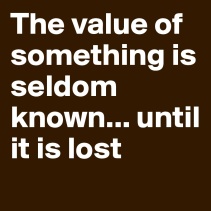
A critical realist take on value might just stop university value being diminished






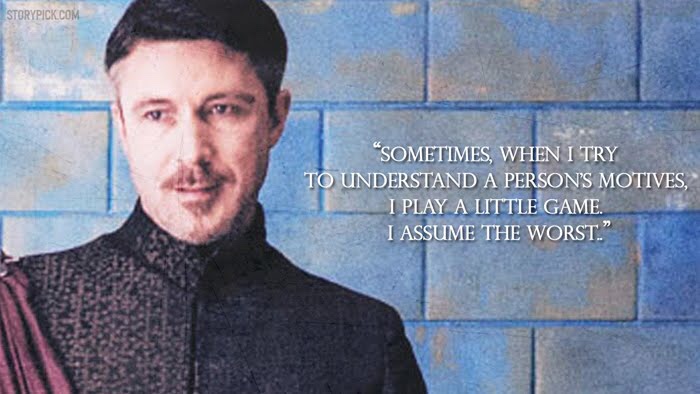
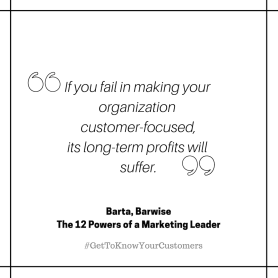

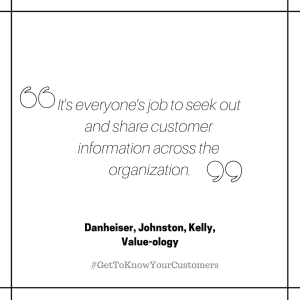
 p
p







